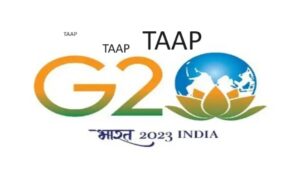Public sector banks in India actively participate in various schemes to support the growth and development of MSME customers.
The government-sponsored schemes offered by public sector banks:
- Credit Guarantee Fund Scheme for Micro and Small Enterprises (CGTMSE)
- Prime Minister’s Employment Generation Programme (PMEGP)
- Stand-Up India Scheme
- Pradhan Mantri Mudra Yojana (PMMY)
Credit Guarantee Fund Scheme for Micro and Small Enterprises (CGTMSE):
This scheme aims to provide collateral-free credit facilities to eligible MSMEs. Under this scheme, public sector banks extend loans to MSMEs, and the Credit Guarantee Trust for Micro and Small Enterprises (CGTMSE) provides a guarantee coverage of up to 75-80% to the banks, mitigating the risk involved.
To avail the benefits of this scheme, micro and small enterprises must meet certain criteria. The eligibility extends to both new and existing enterprises. Under this scheme, the borrower’s business should fall under the definition of micro, small, or medium enterprises as per the Micro, Small, and Medium Enterprises Development (MSMED) Act, 2006. Additionally, the borrower should not have defaulted on any loan or credit facility with any bank or financial institution.
Prime Minister’s Employment Generation Programme (PMEGP):
This scheme is designed to promote self-employment opportunities by encouraging the establishment of micro-enterprises. Public sector banks play a crucial role in implementing this scheme by providing financial assistance to entrepreneurs for setting up their ventures. The scheme offers subsidies and credit linked capital investment for selected projects.
This scheme focuses on promoting self-employment opportunities. To be eligible, individuals must fall under specific categories, such as rural and urban artisans, educated unemployed individuals, and entrepreneurs from weaker sections of society. The age limit for individuals is generally between 18 and 35 years. The scheme also requires the entrepreneur to submit a well-defined project report for the proposed venture.
Stand-Up India Scheme:
This scheme aims to promote entrepreneurship among women and individuals from Scheduled Castes (SC) and Scheduled Tribes (ST) by providing access to bank loans for starting new ventures. Public sector banks actively participate in this scheme by extending loans ranging from Rs. 10 lakh to Rs. 1 crore to eligible entrepreneurs, along with support and handholding services.
This scheme primarily targets women and individuals belonging to Scheduled Castes (SC) and Scheduled Tribes (ST) categories. To qualify, the borrower should be an Indian citizen and fall within the age range specified by the scheme. The scheme also mandates that the borrower should not have any existing loan defaults with any bank or financial institution.
Pradhan Mantri Mudra Yojana (PMMY):
This scheme focuses on providing financial support to micro and small enterprises through the provision of loans. Public sector banks are the main facilitators of this scheme, offering three types of loans under the PMMY:
Shishu, Kishor, and Tarun, based on the stage of the enterprise.
These loans can be availed for various purposes, such as business expansion, working capital requirements, and the purchase of equipment.
The eligibility criteria for availing loans under PMMY vary based on the loan category. The Shishu category supports enterprises at an early stage, Kishor category caters to businesses in the growth phase, and Tarun category assists established enterprises. The borrower’s business should fall within the definition of micro or small enterprises, as per the classification provided by the scheme.
There are many more schemes and initiatives aimed at supporting MSMEs in India. Public sector banks play a crucial role in implementing these schemes, providing financial assistance, and ensuring the growth and development of MSMEs across the country.




